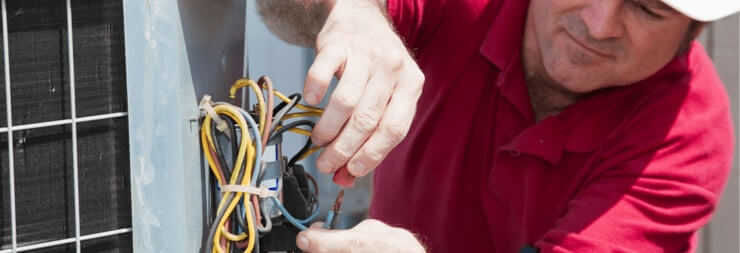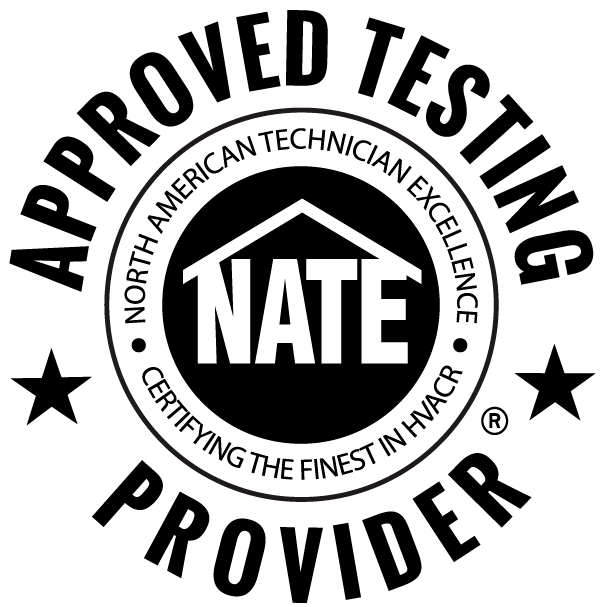In Florida, you hope to never experience AC or heater issues – especially when you aren’t even running your HVAC system. Yet, contrary to popular belief, the winter months do bring chilly nights. That’s when you turn on your heat to keep your home comfortable. But, what should you do if your AC fails to turn on or makes a chattering noise? The problem could be your AC contactor.
What is an AC Contactor?
An AC contactor is an electrical transmitter that relays information to various parts of the air conditioning system. It’s essentially a switch that moves the electrical power to a different circuit. When you set your AC unit to cool or heat your home, the contactor volt side and load side make a connection. The load side is where the compressor and fan motor are controlled. When your home has reached the set temperature, the contactor opens – stopping the power to the AC unit.
Bad AC Contactor Symptoms
When a contactor begins to fail or break, it won’t pull close. This forfeits the connection between the two sides. In some cases, your thermostat will click on, but your AC unit won’t operate. This means that the contactor is completely broken and isn’t providing the electrical current needed to run your system.
Whether your AC contactor is faulty or failing completely, there are a few signs to keep in mind. These bad AC contactor signs may include:
1. Humming
When your AC is on, it may produce a humming sound – but, it won’t power on. This can also be an indication of weak coils or dirty contacts. This is usually caused by the button not being pushed in. Manually pushing in the button will cause your unit to function as normal, but can be dangerous to do on your own.
2. Chattering
When the contacts are dirty, or the coil has become weak, you may hear the plunger make a chattering sound. That’s because the plunger is trying to make contact, but can’t do so completely. Sometimes replacing the coils can be enough to fix the problem, but always call an HVAC technician to resolve the issue.
3. Melting
In rare cases, your contactor can overheat – causing the plastic molding or casing to melt off. In this case, your contactor needs to be replaced immediately. You should turn off your AC unit until a technician can come out.
* Your contactor can also cause your AC fan to stop running.
How to Test an AC Contactor
If your AC system is making a humming or chattering noise, you can test to see if the issue is with your contactor or a different part. To safely test your contactor, you’ll need the following tools:
- Screwdriver
- Multimeter
- Phone or Camera
Step 1. Turn off the power. Shut down your air conditioning unit at the thermostat and also the breaker level. This will eliminate your risk of electrocution.
Step 2. Unscrew the side cover. Walk over to your condenser unit, and then use your screwdriver to remove the side cover so that you can see the contactor and corresponding wires.
Step 3. Take a picture. You’ll want to see where each wire is connected and how they’re positioned. Take a picture using your phone or a digital camera – making sure to take from different angles if necessary.
Step 4. Remove the contactor and wires. Using your screwdriver, remove the contactor from the unit. Once the contactor has been removed, carefully unplug the wires.
Step 5. Test the contactor. Set your multimeter to the OL setting. Connect the multimeter to the low volt terminals on both sides of the contact. If the contactor is working adequately, then the reading will display between 5 and 20 volts. If you get a lower reading or no reading at all, your contactor needs to be replaced.
Step 6. Replace the contactor. Purchase a new contactor or call an HVAC technician to replace your contactor. If you purchased one yourself, use the picture you took to rewire the new contactor. Reinstall the condenser’s side cover and return power to your AC unit.
AC Service in Brevard County
At Colman, we can help you replace your failing AC contactor as well as troubleshoot air conditioning issues. We also have a 24/7 AC emergency line. Call us if you need assistance ASAP, or if you need to schedule routine HVAC maintenance.
24-HR Emergency Service: (321) 269-4565








